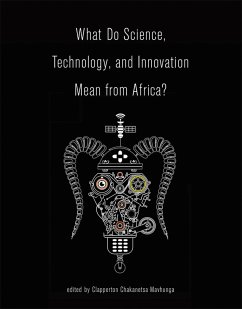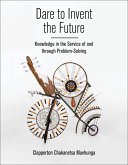In the STI literature, Africa has often been regarded as a recipient of science, technology, and innovation rather than a maker of them. In this book, scholars from a range of disciplines show that STI in Africa is not merely the product of "technology transfer” from elsewhere but the working of African knowledge. Their contributions focus on African ways of looking, meaning-making, and creating. The chapter authors see Africans as intellectual agents whose perspectives constitute authoritative knowledge and whose strategic deployment of both endogenous and inbound things represents an African-centered notion of STI. "Things do not (always) mean the same from everywhere,” observes Clapperton Chakanetsa Mavhunga, the volume's editor. Western, colonialist definitions of STI are not universalizable.
The contributors discuss topics that include the trivialization of indigenous knowledge under colonialism; the creative labor of chimurenga, the transformation of everyday surroundings into military infrastructure; the role of enslaved Africans in America as innovators and synthesizers; the African ethos of "fixing”; the constitutive appropriation that makes mobile technologies African; and an African innovation strategy that builds on domestic capacities. The contributions describe an Africa that is creative, technological, and scientific, showing that African STI is the latest iteration of a long process of accumulative, multicultural knowledge production.
Contributors Geri Augusto, Shadreck Chirikure, Chux Daniels, Ron Eglash, Ellen Foster, Garrick E. Louis, D. A. Masolo, Clapperton Chakanetsa Mavhunga, Neda Nazemi, Toluwalogo Odumosu, Katrien Pype, Scott Remer
Dieser Download kann aus rechtlichen Gründen nur mit Rechnungsadresse in A, B, BG, CY, CZ, D, DK, EW, E, FIN, F, GR, HR, H, IRL, I, LT, L, LR, M, NL, PL, P, R, S, SLO, SK ausgeliefert werden.









